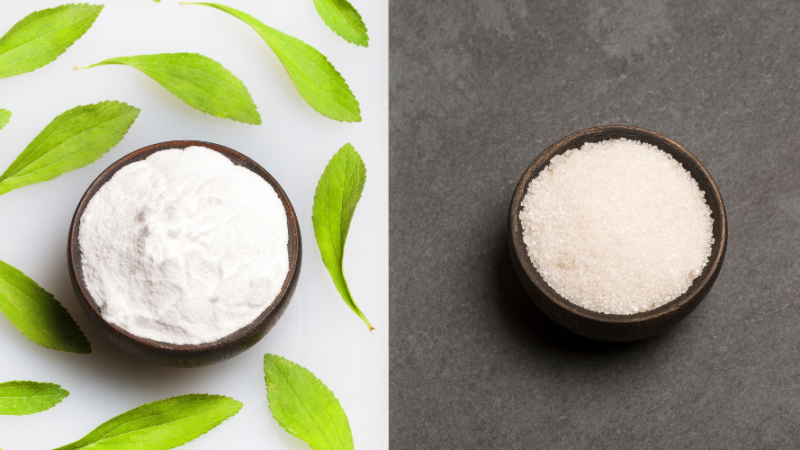Inflammation: Causes, Sign & How To Prevent

Inflammation is a natural response by the body’s immune system to protect against harmful stimuli, such as pathogens, toxins, or injuries. While acute inflammation is essential for healing and fighting off infections, chronic inflammation can contribute to various health problems.
In this blog, we’ll explore the causes of inflammation, common signs and symptoms, and strategies to prevent and reduce inflammation for better overall health.
Causes of Inflammation
- Infection: Pathogens such as bacteria, viruses, fungi, or parasites can invade the body, triggering an immune response that leads to inflammation as the immune system attempts to eradicate the infection.
- Injury: Physical trauma, such as cuts, bruises, burns, or fractures, can damage tissues and trigger an inflammatory response as the body initiates the healing process.
- Chronic Stress: Prolonged stress can dysregulate the immune system and lead to chronic inflammation, increasing the risk of various health conditions such as cardiovascular disease, diabetes, and autoimmune disorders.
- Poor Diet: Consuming a diet high in processed foods, refined sugars, unhealthy fats, and artificial additives can promote inflammation in the body, contributing to chronic diseases such as obesity, diabetes, and inflammatory bowel disease.
- Sedentary Lifestyle: Lack of physical activity and prolonged sitting can contribute to inflammation and increase the risk of chronic diseases such as obesity, heart disease, and metabolic syndrome.
- Environmental Toxins: Exposure to environmental pollutants, toxins, allergens, and irritants such as air pollution, pesticides, heavy metals, and cigarette smoke can trigger inflammation and compromise immune function.
- Chronic Diseases: Underlying health conditions such as obesity, diabetes, autoimmune disorders, cardiovascular disease, and inflammatory bowel disease are associated with chronic inflammation and can exacerbate inflammation throughout the body.

Signs and Symptoms of Inflammation
- Pain: Localized or generalized pain, tenderness, or discomfort in affected areas, which may range from mild to severe and can be constant or intermittent.
- Redness: Visible redness or discoloration of the skin or affected tissues, often accompanied by warmth and swelling.
- Swelling: Swelling or edema due to increased fluid accumulation in tissues, resulting from the dilation of blood vessels and leakage of fluid into surrounding tissues.
- Heat: Increased warmth or heat in the affected area, caused by the increased blood flow and metabolic activity associated with inflammation.
- Loss of Function: Impaired function or mobility in affected joints, muscles, or tissues, resulting from pain, swelling, or stiffness.
- Fatigue: Generalized fatigue, weakness, or malaise, which may accompany systemic inflammation and result from the body’s immune response.
- Fever: Elevated body temperature above the normal range (typically 98.6°F or 37°C), which can occur as a response to infection or systemic inflammation, signaling the activation of the immune system.
Prevention and Management of Inflammation
- Eat a Balanced Diet: Focus on consuming a diet rich in whole, nutrient-dense foods such as fruits, vegetables, lean proteins, whole grains, and healthy fats. Avoid or limit processed foods, refined sugars, unhealthy fats, and artificial additives, which can promote inflammation in the body.
- Maintain a Healthy Weight: Maintain a healthy weight through regular physical activity, balanced nutrition, and portion control. Excess body weight, especially abdominal fat, can contribute to inflammation and increase the risk of chronic diseases such as diabetes, heart disease, and arthritis.
- Exercise Regularly: Engage in regular physical activity, including aerobic exercise, strength training, and flexibility exercises. Exercise helps reduce inflammation, improve circulation, support immune function, and promote overall health and well-being.
- Manage Stress: Practice stress-reduction techniques such as meditation, deep breathing, yoga, or tai chi to lower cortisol levels and reduce inflammation. Chronic stress can dysregulate the immune system and contribute to inflammation, so finding healthy ways to manage stress is essential.
- Get Adequate Sleep: Prioritize quality sleep by maintaining a regular sleep schedule, creating a relaxing bedtime routine, and ensuring a comfortable sleep environment. Aim for 7-9 hours of sleep per night to support immune function, reduce inflammation, and promote overall health.

- Avoid Smoking and Excessive Alcohol Consumption: Quit smoking and limit alcohol intake to reduce inflammation, lower oxidative stress, and improve overall health. Smoking and excessive alcohol consumption can increase inflammation and contribute to various health problems.
- Minimize Exposure to Toxins: Reduce exposure to environmental pollutants, toxins, and allergens by maintaining a clean and healthy living environment. Use natural cleaning products, avoid unnecessary chemicals, and minimize exposure to air pollution, pesticides, heavy metals, and other toxins.
- Follow Medical Advice: Follow medical advice, take prescribed medications as directed, and attend regular check-ups to manage underlying health conditions and prevent complications associated with inflammation. Work with healthcare professionals to develop a personalized plan for managing inflammation and optimizing health.
Acute inflammation vs. Chronic inflammation
| Aspect | Acute Inflammation | Chronic Inflammation |
| Duration | Short-term, typically lasting a few days to a few weeks | Long-term, lasting for months or years |
| Cause | Triggered by injury, infection, or tissue damage | Can result from unresolved acute inflammation or underlying health conditions |
| Immune Response | Rapid and intense immune response characterized by swelling, redness, heat, and pain | Prolonged immune response with persistent inflammation and tissue damage |
| Healing Process | Aims to eliminate the cause of inflammation and promote tissue repair and healing | Can lead to tissue destruction, fibrosis, and impaired function |
| Examples | Examples include cuts, bruises, infections, and acute illnesses | Examples include autoimmune diseases, obesity, diabetes, and cardiovascular disease |
| Symptoms | Symptoms typically resolve once the underlying cause is addressed | Symptoms may persist or fluctuate over time, contributing to chronic health problems |
| Treatment Approach | Often resolves on its own or with minimal treatment such as rest, ice, compression, and elevation (RICE) | Requires long-term management and may involve medications, lifestyle changes, and preventive measures |
| Prognosis | Generally has a good prognosis with proper treatment and healing | Can lead to progressive tissue damage, organ dysfunction, and increased risk of complications |
Inflammation is a natural and essential part of the body’s immune response, but chronic inflammation can contribute to various health problems. By understanding the causes, signs, and preventive measures of inflammation, individuals can take proactive steps to reduce inflammation, support immune function, and improve overall health and well-being.
Incorporating healthy lifestyle habits such as balanced nutrition, regular exercise, stress management, adequate sleep, and avoidance of toxins can help prevent inflammation and promote optimal health for long-term wellness.






